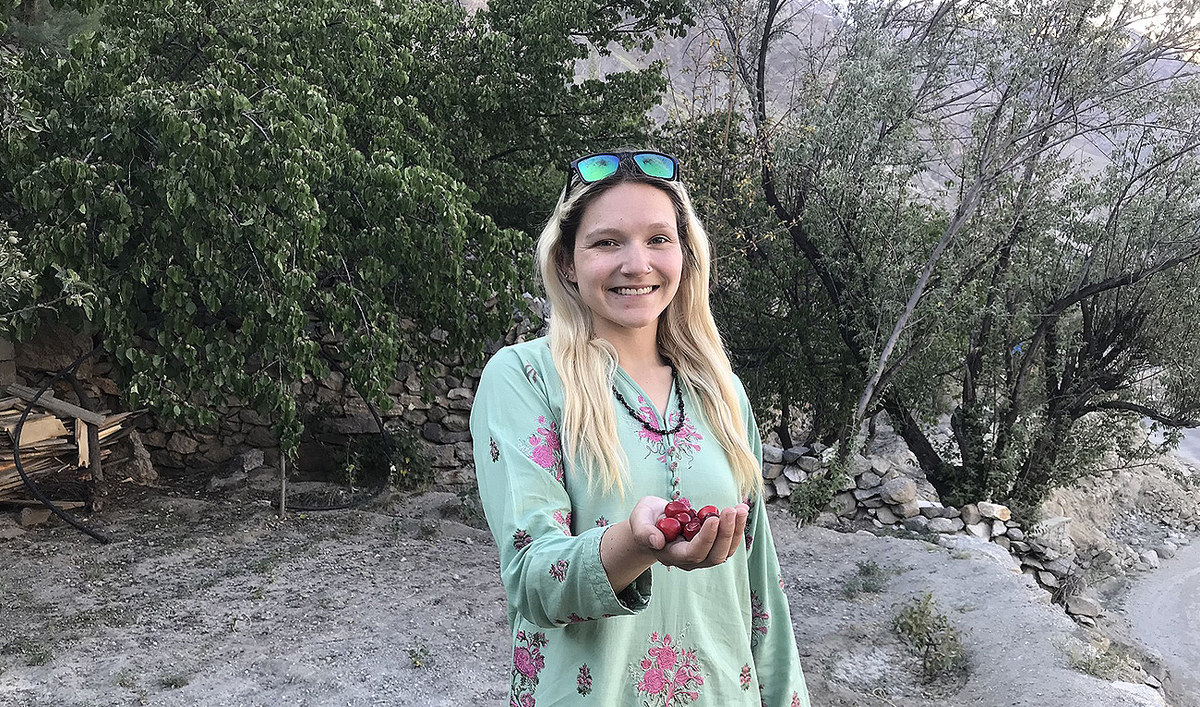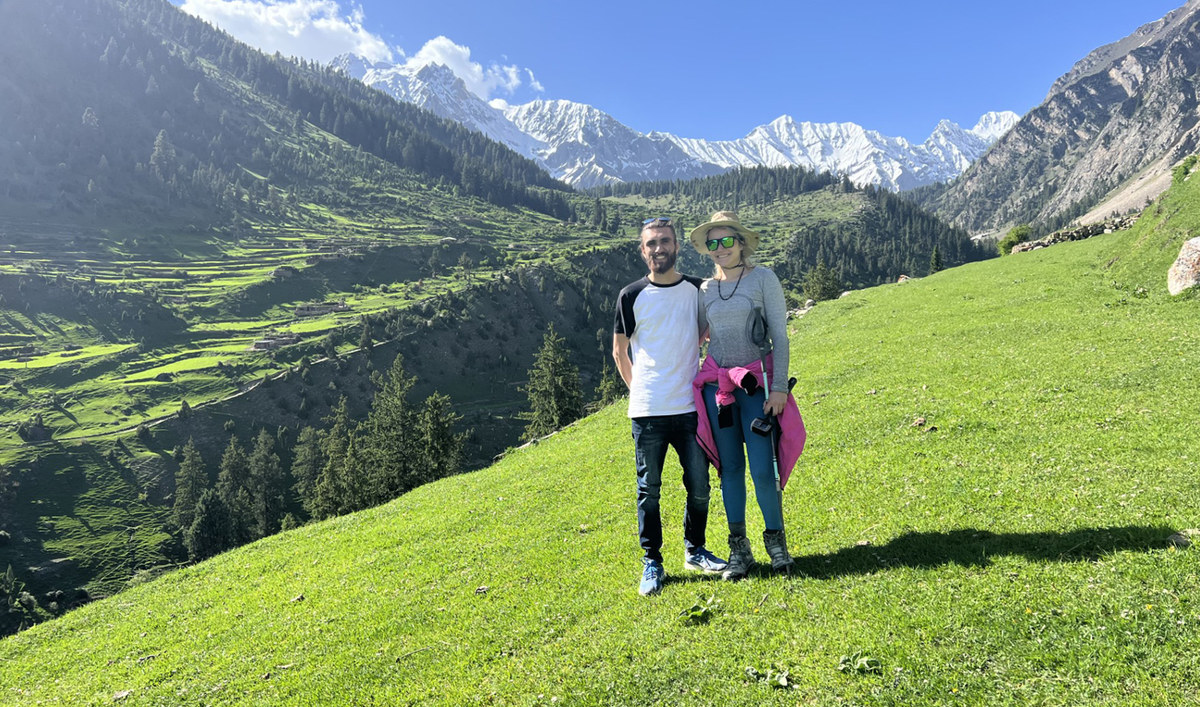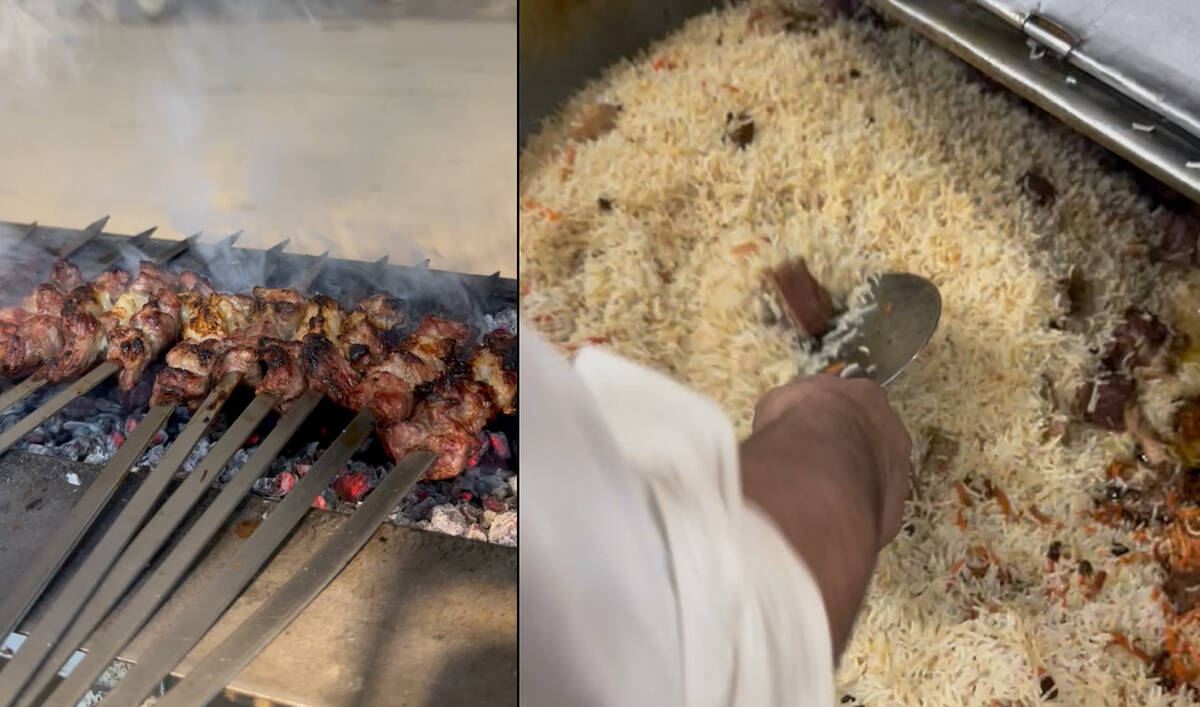HUNZA: Samantha Shea, a 27-year-old American digital nomad, had never been outside of the United States while growing up. In 2019, she traveled to more than a dozen countries, including India and Pakistan, but was so captivated by the beauty of the scenic northern Pakistani region of Gilgit-Baltistan (GB) that two years later she made it her home.
The mountainous region is home to five out of 14 world peaks above the height of 8,000 meters, and was listed by Forbes among the ten “coolest places” to visit in 2018.
Born and raised in Connecticut, Shea graduated from the University of Miami and describes herself as a freelance writer, blogger, and budget backpacker. She decided to work as a digital nomad and moved to GB’s Hunza valley in 2021.
In addition to Pakistan, she traveled to 15 other countries in 2019 but says she fell in love with Hunza.
“I really feel like, it was honestly like love at first sight moment with Hunza. I had seen so many [places], I’d done a lot of research, I’d seen videos and photos and I’d read different things about the history and everything [of Hunza],” Shea told Arab News in an exclusive interview last week.
“However, really being here and seeing it for myself was just unbelievable… I come from a place that does not have many [high] mountains. So, I was just fully blown away by the landscapes and everything.”
But the splendor of Hunza’s landscapes was not the only thing that bewitched her.

In this photo, taken on June 15, 2023, Samantha Shea, a US Vlogger, gestures for a photograph during an interview with Arab News at her Pakistani residence in Ali Abad Valley of Hunza district in Gilgit-Baltistan. (AN Photo)
Shea says she was touched by the warmth of the local people and the community-oriented environment in Hunza. The valley is home to the Ismaili community which is famed for its hospitality.
“That (beauty) was just the first thing. The other thing that really just made me fall in love with Hunza [was] just the warmth and welcoming, just the wonderful energy of the people here. The people in Hunza are truly just no other people I’ve come across,” she said.
The digital nomad also married a Pakistani national, Farid Sultan, in 2021 who works in trekking tourism. They met at a local coworking space and now live in the Aliabad area of the valley, which shares its border with western China.
She says she also loves Hunza for being a “very walkable place,” where she could take a stroll in peace:
“Everything is within 10, 15 minutes on foot. So, a lot of things are really just simpler but, in that way, they are more peaceful, and life is a lot more enjoyable I feel, even just the day-to-day routine items.”

This photograph, provided with the courtesy of US Vlogger Samantha Shea, shows Shea and her partner, Fareed Sultan, at Khaltoro Valley of Gilgit-Baltistan in June 2023.
Asked how she has been dealing with the power shortfall and other issues in the region, Shea agreed there had been some inconveniences, particularly the power outages, but said the tranquility that came with being surrounded by the highest peaks in the world and literally living in a bowl of mountains felt like something one could never find in the US.
“And I feel like, maybe people wouldn’t be able to appreciate it if [they] haven’t seen this as well. But for me, having lived in Miami, one of the world’s most well-known international cities, none of the amenities were bringing me as much peace, happiness, and contentment with life as being able to live in a village-type environment as beautiful as Hunza.”
Speaking of her daily routine in Hunza, Shea said she was mostly pursuing her love for writing through freelance gigs.
“I have always really had a love for writing, and I’ve always been involved in different writing courses and classes and stuff. And these days, my main job per se is I work as a freelancer, and my main wheelhouse is freelance writing. And this includes almost everything related to travel,” she said.
Aside from writing for other online travel platforms, Shea has her own website as well as a YouTube channel where she documents her experience of living in Hunza.
“And I’m very lucky to be able to work online. Actually, it was really, like, ideal as well, because only recently did Hunza get into the fiber cable Internet.”
Busting myths about Pakistan being an ‘unsafe’ country, Shea said all of Pakistan, particularly Hunza, was much better and she was “more comfortable” here than she was in the US.
“Hunza is more comfortable because it is a very, very safe environment. [In contrast], if you look up the local news anywhere in the US, there’s going to be crazy events happening, you know. any types of crimes and things going on there,” she said.
“There are a ton of shootings that go on in the US that I was very against and find very disturbing. All of Pakistan is much better, but particularly in Hunza, it’s a very, very safe place, so I feel very secure here. I felt safe here when I arrived as a solo female traveler.”



















